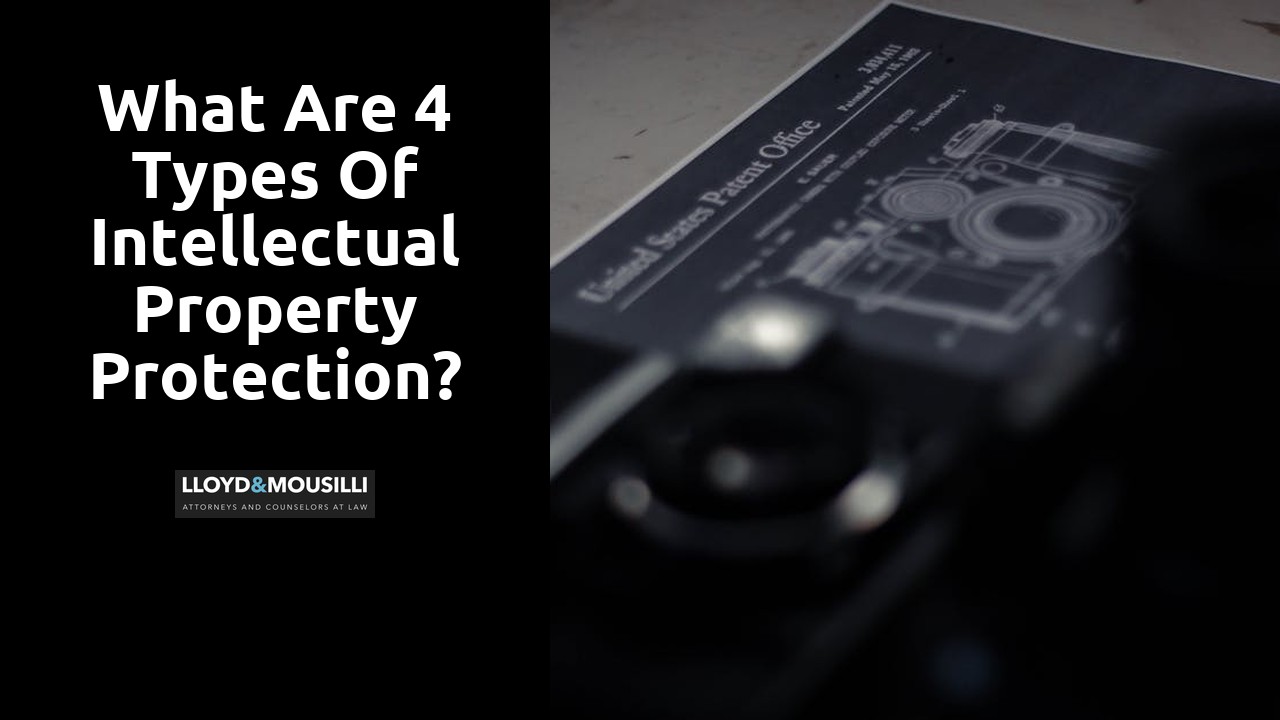What are 4 types of intellectual property protection?

Table Of Contents
Trade Secret
Trade secrets are a valuable form of intellectual property protection that companies often rely on to safeguard confidential information. These secrets can include a wide range of data such as formulas, algorithms, customer lists, and marketing strategies. Unlike patents, trademarks, and copyrights which require registration with government authorities to be protected, trade secrets do not have a formal application process. Instead, they are maintained through the implementation of internal policies and procedures, such as non-disclosure agreements and restricted access to sensitive information.
Protection measures for trade secrets involve establishing clear guidelines for employees, partners, and contractors regarding the handling of confidential information. This typically includes limiting access to trade secrets on a need-to-know basis, conducting regular training sessions on data security practices, and utilizing encryption and password protection techniques for digital resources containing sensitive data. Companies must also be prepared to enforce their trade secret protections by taking legal action against individuals or entities who unlawfully disclose or misuse confidential information that falls under the umbrella of intellectual property protection.
Protection Measures and Enforcement
Protection measures and enforcement are crucial components of maintaining the integrity of intellectual property protection. Companies often employ a variety of tactics to safeguard their intellectual property rights. These tactics can include implementing strict confidentiality agreements, conducting regular training sessions to educate employees on the importance of intellectual property protection, and utilizing secure technological systems to prevent unauthorized access to sensitive information.
Enforcement of intellectual property protection involves taking legal action against individuals or entities that violate intellectual property rights. This can include filing lawsuits, seeking injunctions to stop the unauthorized use of protected intellectual property, and pursuing damages for any losses incurred as a result of infringement. The enforcement of intellectual property protection is essential to deter potential infringers and ensure that the rights of creators and innovators are upheld and respected.
FAQS
What is a trade secret?
A trade secret is confidential information that provides a competitive advantage to a business and is not generally known to the public.
What types of information can be classified as a trade secret?
Information such as formulas, algorithms, customer lists, and marketing strategies can be classified as trade secrets.
How can a business protect its trade secrets?
Businesses can protect their trade secrets by implementing confidentiality agreements, restricting access to sensitive information, and using encryption or other security measures.
What legal remedies are available if someone misappropriates a trade secret?
If someone misappropriates a trade secret, the business can seek legal remedies such as injunctions to prevent further disclosure and monetary damages for the harm caused.
How can trade secrets be enforced?
Trade secrets can be enforced through civil litigation, where the business can sue the individual or entity that misappropriated the trade secret and seek legal remedies for the damages incurred.
Related Links
Intellectual Property ProtectionWhat are the 4 ways to protect intellectual property?
What is the purpose of the intellectual property?